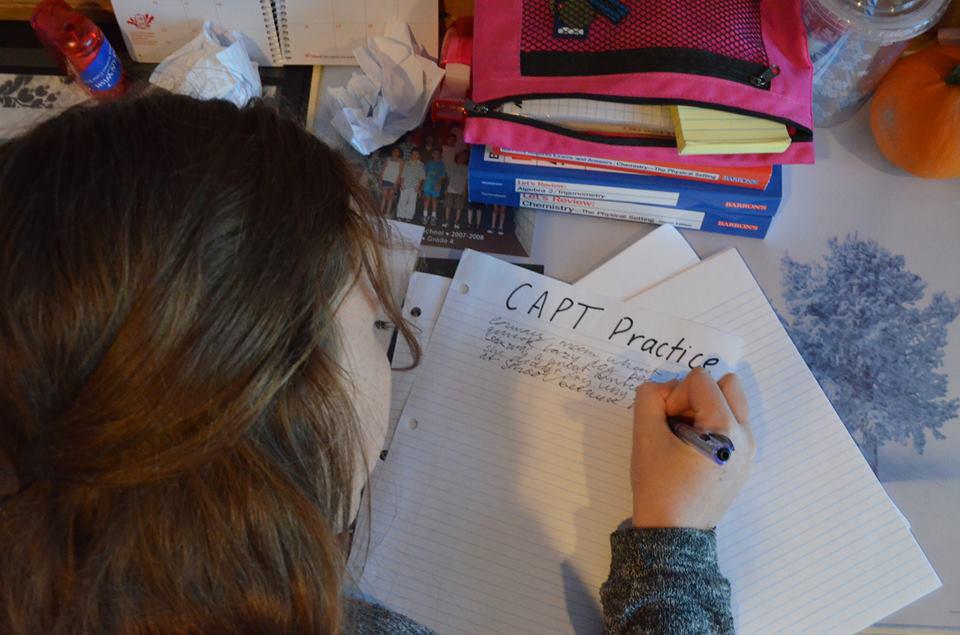Sophomore year is plagued with just one major thing: Connecticut Academic Performance Test (CAPT). Freshman year, students struggle adapting to the new high school environment; junior year is notoriously the hardest year during high school; senior year is haunted by applying to colleges. But sophomore year has remained generally unharmed.
Until now.
Starting with this year sophomore class, students not only have to take the CAPT test during their sophomore year, but they will also have to take a Smarter Balanced test the following year, which measures Common Core Standards. If that weren’t enough, sophomores will now be writing their research paper in the months after the CAPT tests, which take place in March.
The school has implemented this new testing because we are a Smarter Balanced Member State, which means that we are committed to instilling Common Core State Standards. This test will provide feedback and possible action that the school can take to make sure that students meet these standards.
“To make the students take two years of standardized tests is unfair and doing the opposite of enhancing our learning,” Gracyn Levenson ’16 said. Levenson is disappointed that learning has become about learning to pass a standardized test, rather than learning to simply learn.
Susan O’Hara, an English teacher for some sophomore classes, has observed confusion between the words “standard” and “standardized.” She explained that “standardized” means that people across an area have the same curriculum, but “standard” means that people are teaching towards the same goals.
“In Denmark, where I taught in a public high school, exams were made by teachers from neighboring high schools to make sure that all schools kept to the same ‘standard,’” she said. She expects that students who work hard will do well on the Smarter Balanced testing, as they have done with the CAPT tests for years.
Vig Namasivayam ’16 is another displeased student; he thinks these types of tests are a waste of time. However, he sees benefits in writing the research paper sophomore year instead of junior year.
“I think it will be less stress on me next year, when I’ll have a heavier workload while starting to take care of college work,” he said.
Sophomore English teacher, Holly Sulzycki agreed. “I think the multiple demands of junior year are very stressful, and removing the research paper from that mix does seem like a logical way to lighten the load a bit,” Sulzycki said.
She is, however, feeling the pressure of fitting everything in. “As you might imagine, the thought of getting three classes through a research paper process is rather daunting, especially given the time already dedicated to preparing students for CAPT in March,” Sulzycki said.
Michele Beaudoin ’14 thought about the changes, as she went through high school without these requirements.
“If I had to do all of that standardized testing and write my research paper right after CAPT testing, I would be really mad,” Beaudoin said. “I feel like this standardized testing is getting in the way of the curriculum and I just don’t know if it’s worth it.”














































